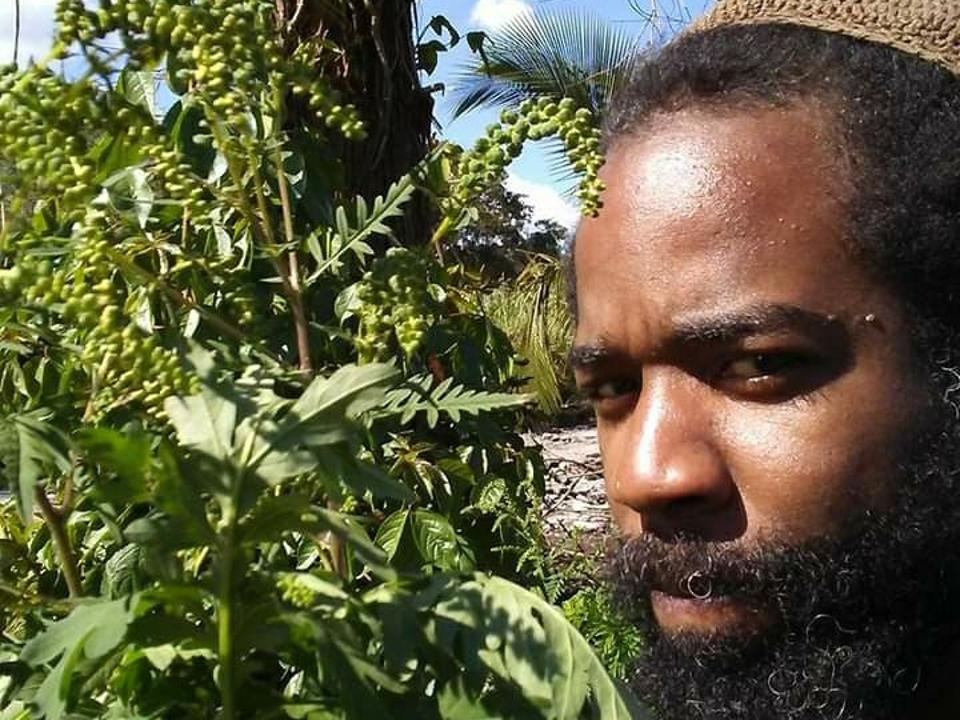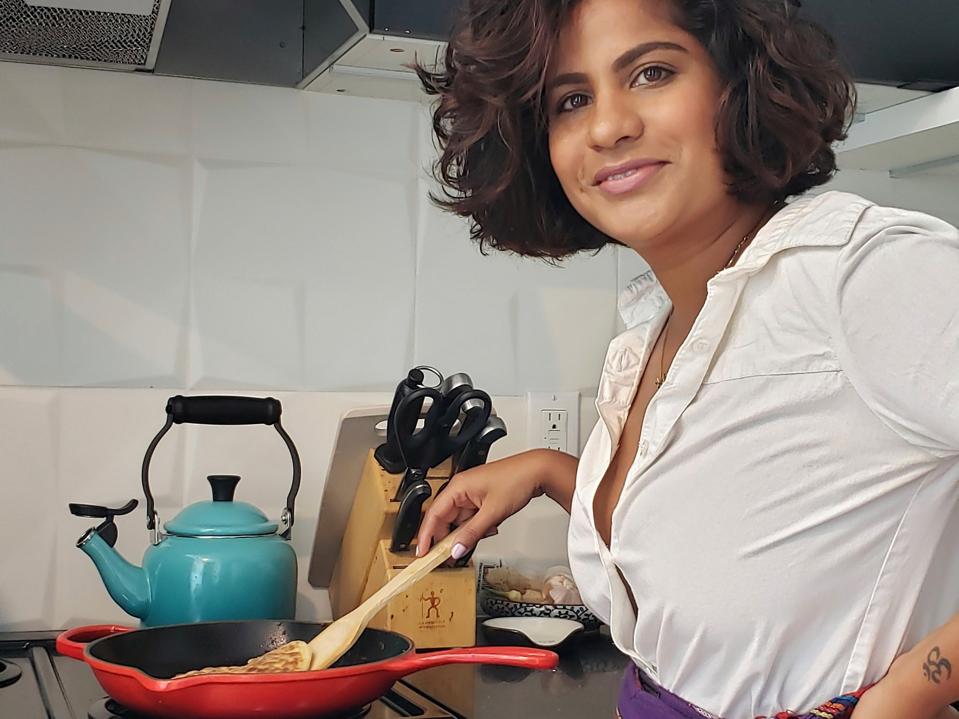Caribbean culinary traditions originated with intuitive or “really feel” cooking. The most typical meals related to the area weren’t born of recipe books or cooking exhibits or popularized by the newest influencers or Instagram feeds.
The most well-liked Caribbean dishes have been a product of adaptation. The Taino Indians and African Maroons of Jamaica initially used Jamaican jerk seasoning as a preservative. The Barbadian nationwide dish of cou-cou, made from corn meal and okra or ochroes (which got here to the area from Africa) usually paired with flying fish, turned widespread in the course of the early colonial interval resulting from its affordability, and bears a putting resemblance to Ghanaian Banku.
Caribbean intuitive cooking was conceived on early Amerindian settlements, within the coronary heart of West Africa, on Trans-Atlantic slave ships, within the migration of Chinese language and Indian indentured labourers, by means of Syrian service provider migrations and accentuated by English, Spanish, Dutch and Danish colonial influences. The earliest Caribbean meals pathways had been rooted in battle and— in resilience— and regardless of the appearance of know-how, Caribbean culinary traditions stay in essentially the most genuine of locations, within the DNA and the souls of Caribbean individuals.
Intuitive cooking in its purest type makes use of components which might be in season, doesn’t rely upon a well-stocked pantry and is each aware and “heartful.” There isn’t a room for fad diets, strict recipes or ultra-processed packaged meals. Creativity, innovation and ingenuity are all born right here.
“Cooking from an intuitive standpoint permits our kitchen to specific itself day by day primarily based on what’s accessible,” says Chef Digby Strideron, a Modern West Indian Chef from St. Croix within the US Virgin Islands.
Seasonal components and regional recipes encourage Strideron, “bringing out” his creativity and permitting him to “develop with” his delicacies. He has spent the previous decade as a forager, “chasing flavors and tales” and says that “focusing in on the method and beliefs behind the recipes is extra vital than creating the identical dish time and again in the identical method.”
“Being intuitive within the kitchen permits me to faucet into the artistic course of behind cooking and specific who I’m,” says Strideron. “Historically, intuitive cooking made sense as our ancestors needed to depend on what was in season— what they had been in a position to hunt or protect. These items modified day by day however the delicacies remained and whereas all recipes proceed to alter, understanding why is a very powerful half.”
Whereas meals traditions are a type of cultural inheritance, the culinary ingenuity that has prolonged into fashionable instances, has constructed on the Caribbean’s spirit of resourcefulness and resilience, creating house for healers, high-end cooks in addition to Diasporic and overseas interpretations.
Chef Sherri Hillman shouldn’t be your unusual chef— in truth, she refers to herself as a cooking gypsy. She has travelled the world delighting shoppers and audiences along with her “again to the earth” perspective on cooking— however she says that when she arrived to Barbados in 1990 and the Cayman Islands, in 2007, her soul discovered its house.
Throughout her years within the Cayman Islands, Hillman hosted common farm to desk dinners, turning into considerably of the Tony Robbins of the anti-ultra-processed meals motion, evangelizing her friends across the significance of seasonal, native consuming and “cooking from scratch.”
“After I prepare dinner for somebody, I prepare dinner with my instinct within the second, my connection to what’s accessible and with intention to offer the healthiest, most scrumptious meal doable,” says Hillman. “Meals is our connection to life and I really feel individuals have forgotten that. We have now our bodies that may heal themselves if fed the suitable meals. So few individuals and docs share or push that worth. It isn’t even one thing that’s taught in colleges.”
Chef Sherri Hillman
Chef Sherri Hillman
And Jamaican Chef, Ben Tsedek is aware of a factor or two about therapeutic by means of meals.
Tsedek is a Rastafarian uncooked vegan chef, an natural farmer, a medical qi gong practitioner and an African bio mineral steadiness practitioner who commutes between the hills of Mandeville Jamaica and his farm in Boca Raton Florida.
“You don’t should take a life to maintain a life,” says Tsedek, who ascribes to the Yoruba perspective of asé as life pressure that may be discovered within the meals we eat. “If I eat a pumpkin, I don’t should kill the pumpkin plant. My meals doesn’t carry a karmic debt.”
The previous proprietor of widespread Kingston uncooked vegan restaurant, Firelight, Tsedek believes within the “energy of the solar” to prepare dinner his meals and stresses that “if individuals would hearken to their our bodies and prepare dinner accordingly, they might eat in concord with their genetic predisposition and forestall or remedy themselves from illnesses.”
Tsedek says that his intuitive means of cooking his prized soups and different dishes aids with cleaning, digestion and regeneration. His favorite components are all discovered within the context of his pure surroundings and embody pumpkin, inexperienced bananas, string beans, okras, amaranth, scallions, thyme and sea moss, the latter of which he says, “naturally fortifies and harmonizes the weather within the pot.”
Chef Ben Tsedek
Chef Ben Tsedek
And simply as intuitive cooking connects with power and life pressure, it additionally connects with ancestral and household traditions.
Stephanie Ramlogan is aware of this idea all too properly. As a Trinidadian residing in New York, she reconnects with house by placing her personal spin on acquainted dishes, utilizing Diasporic flavours and spices which might be accessible and that “converse” to her.
“I wasn’t taught the way to prepare dinner, I simply inherited my mom’s candy hand,” she laughs. “My mom is a unbelievable chef, and I by no means noticed her comply with a recipe. I bear in mind as a baby asking her how she remembered all of the measurements and he or she stated that she simply made them up as she went alongside.”
Residing in the USA, Ramlogan discovered to improvise on what she noticed her mom doing in her kitchen in Trinidad. Utilizing style and scent as her barometer, she has grow to be accustomed to substituting American components in her “traditional” Trinidadian dishes and has begun to work on a Diaspora-inspired cookbook.
“I’ve been pulling collectively recipes for Trinbagonian meals that I make in New York— utilizing substitutions,” she explains. “I playfully confer with it as Trini Cooking For Folks In Overseas, and for instance, for one of many recipes I imagined my mom’s voice telling a 21-year-old me the way to make Palau over the telephone. The e-book is meant to be a spot the place individuals who love cooking can come to share, chuckle and be taught. It isn’t supposed to simply have recipes, however tales too, about Caribbean meals and the way I’ve adjusted to dwelling overseas when all I crave is macaroni pie and purple bean stew.”
Stephanie Ramlogan
Stephanie Ramlogan
Intuitive cooking methods have permeated Caribbean life.
Take bush cooking, for instance. Image it— no controls, no warmth settings, no scales, no timers— simply hearth. And whether or not it’s a pot of corn soup over a flame, that includes a effervescent hodgepodge of coconut milk, corn, pumpkin, scotch bonnet and herbs on the aspect of the street, or a breadfruit buried within the burning sand as useless leaves crackle within the embers overhead— this isn’t cooking together with your head, however together with your coronary heart. And it is able to eat, not with the buzzing of a timer, however when the chef says so.
The genuine Caribbean palate originated with and continues to be pushed by seasons, senses, creativity, migration and survival. Whether or not the Pepperpot of Guyana, the Ackee and Saltfish of Jamaica, the Oil Down of Trinidad or the number of complete meals and methods that had been dropped at the New World tons of and hundreds of years in the past, intuitive cooking is vital to cultural survival and resilience that’s being threatened by the mass inflow of imported and ultra-processed meals into the area.
Nourishing the physique also needs to nourish the soul.









